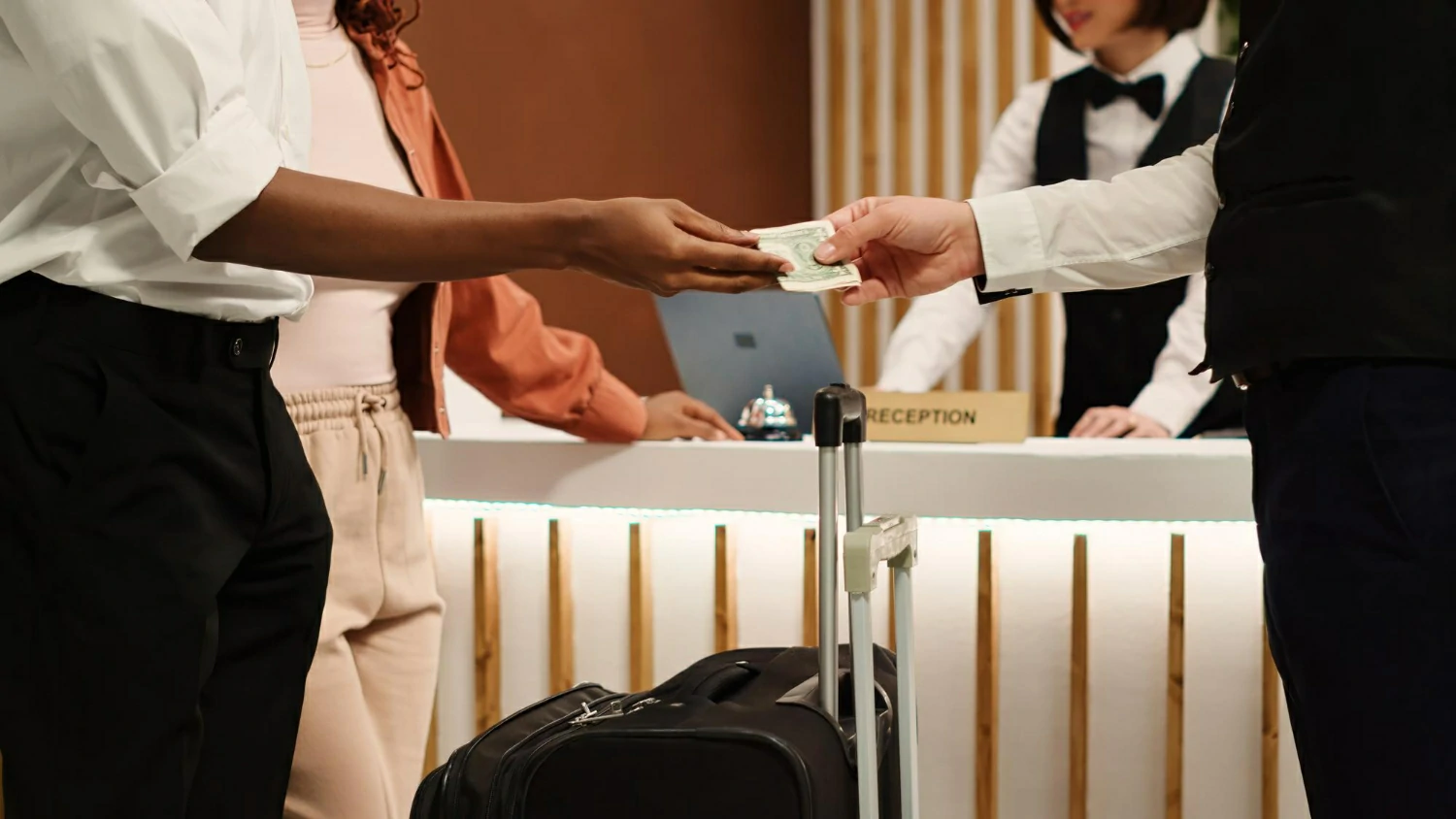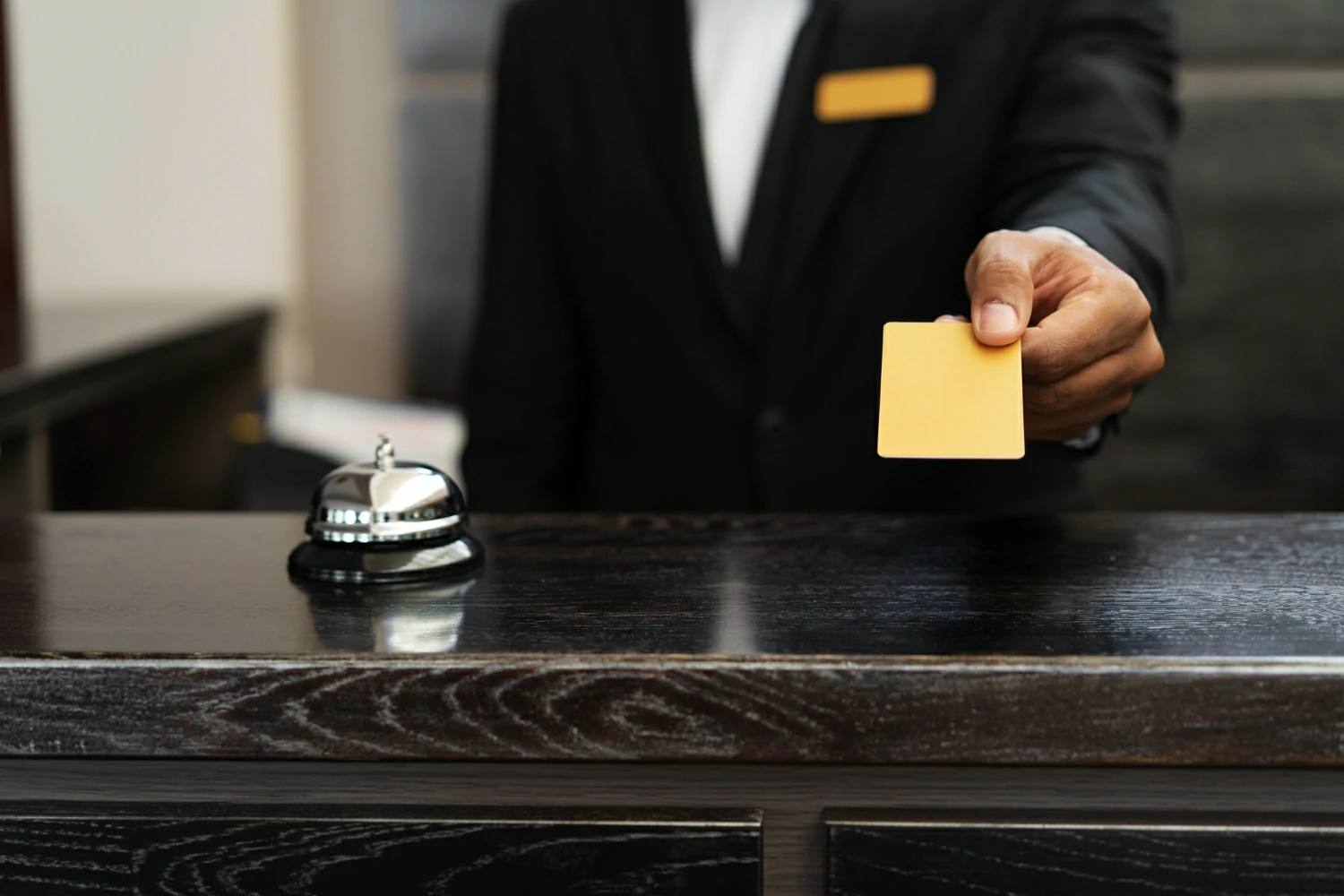Can I pay for a hotel with my account and routing number? Answer is – Sometimes, but with certain considerations. Hotels may accept payment directly from your checking account using your routing and account numbers if they offer that option. However, it’s more common for hotels to place a temporary hold on a debit or credit card to cover incidentals. Always check the hotel’s payment policies before booking.
Summary
- Some hotels may allow direct payment with your account and routing numbers.
- More commonly, hotels use debit/credit cards for holds to ensure payment of any extra charges.
- Always check the hotel’s specific payment policies beforehand.
- Be aware of potential fees or delays with direct bank payments.
Can I pay for a hotel with my account and routing number?

Traditionally, credit cards and debit cards are the most familiar ways to pay for hotel accommodations. However, paying directly with your bank account information (account and routing numbers) is an option that’s gaining some traction.
Here’s why you might consider this method:
Reasons to Consider Paying with Your Bank Account
1. If you don’t have a credit card or prefer not to use one for large purchases, paying directly from your bank account can be a viable solution. This way, you avoid the potential for accruing credit card debt.
2. While not always guaranteed, some hotels may waive certain fees associated with credit card processing when you pay directly from your bank account. It’s worth inquiring about this when discussing payment options with the hotel.
3. Paying directly from your bank account can make it easier to track your spending in real-time. You’ll see the hotel charge reflected immediately in your account balance, helping you stay on top of your travel budget.
4. If you’re concerned about the security risks of using credit or debit cards at unfamiliar businesses, paying directly with your account details might offer some peace of mind. However, it’s crucial to only provide your banking information to reputable hotels with secure payment systems. Always research the hotel’s reputation and inquire about their data protection measures before handing over sensitive information.
Paying Directly with Account and Routing Number
1. How the process works
The process of paying directly with your account details can vary slightly between hotels, but here’s a general outline:
Contact the Hotel: Before booking, it’s essential to call the hotel directly or check their website’s payment policy section to confirm if they accept direct bank payments.
Provide Your Information: If they do, you’ll likely need to provide your bank account number, routing number, and potentially fill out an authorization form. Some hotels may have a secure online portal for this, while others might require you to provide the information over the phone or via email.
Authorization and Payment Processing: The hotel will typically initiate a pre-authorization check to ensure sufficient funds are available. The payment itself can be processed via an ACH (Automated Clearing House) transfer which may take a few business days to complete.
2. Which hotels accept this method
While not as widespread as card payments, a growing number of hotels are starting to offer direct bank transfers as an option.
Here’s how to find those establishments:
Hotel Chains: Some larger hotel chains have integrated this payment method into their booking systems. Examples include Choice Hotels, which offers its own virtual payment solution. Always check the chain’s official website for the most up-to-date information.
Independent Hotels and Boutique Properties: Many independent hotels are more flexible with their payment methods. Contact them directly to inquire about their policies.
Online Travel Agencies (OTAs): Some OTAs may have filters allowing you to search for hotels that specifically accept bank transfers. However, it might be best to double-check with the hotel itself.
3. Potential benefits
Here are some advantages of utilizing your bank details for hotel payments:
Reduced Fees: Some hotels may offer a discount or waive additional fees associated with credit card processing when you opt to pay directly from your bank account.
Security (Situational): If you have concerns about fraud or data breaches with card payments, direct bank transfers could be perceived as relatively more secure. However, it’s vital to ensure the hotel has robust security measures in place to protect your financial information.
Easier Budgeting for Some: If you like immediate visibility into transactions, the deduction from your bank account creates a clear record that can help with travel budget management.
Things to Consider

While paying with your bank account can be convenient, there are specific factors to keep in mind to ensure a smooth and financially responsible experience.
1. Hotel Holds and Deposits
How They Work: Hotels often place a “hold” on funds in your account beyond the room rate. This hold covers potential incidental charges like room service, mini-bar use, or any damages that might occur.
Clearing Time: The release of this hold can vary. Some hotels release it immediately after checkout, while others may take several days or even up to a billing cycle. It’s essential to ask about the hotel’s specific hold policies.
Impact on Available Balance: Keep in mind that the held amount will reduce your available bank balance. Ensure you have sufficient funds to avoid overdraft fees or complications with other pending transactions.
2. Processing times
ACH Transfers: Payments from your bank account are typically processed via the ACH (Automated Clearing House) network. These transactions can take a few business days to complete, unlike the near-instant processing of most credit card payments.
Booking Implications: Factor in the processing time when booking. Contact the hotel in advance to avoid issues with payment not clearing before your check-in date.
3. Potential fees
Bank Fees: Your own bank may charge fees for ACH transfers or other services related to hotel payments. Check your bank’s fee schedule to get a clear understanding.
Hotel Fees: While some hotels might waive fees for bank payments, others might charge an administrative or processing fee. Inquire about these fees before you choose this payment method.
Alternatives to Direct Bank Payments
While paying with your account and routing number can sometimes be a good option, these traditional methods offer flexibility and might be better suited to different situations:
1. Debit Cards
How They Work: Debit cards are linked directly to your checking account, with funds deducted almost immediately upon a transaction.
Advantages:
- Convenience and wide acceptance: Most hotels accept debit cards without hassle.
- Potential Fraud Protection Debit cards often carry liability protection in case of fraudulent transactions, offering some peace of mind. (Check your bank’s policies for specific coverage).
Considerations:
- Holds: Like direct bank payments, hotels often place holds on debit cards that might temporarily decrease your accessible funds.
- Overdraft Risk: Ensure you have sufficient balance to avoid overdraft fees, as debit cards directly draw from your account.
2. Credit Cards
How They Work: Credit cards extend a line of credit, allowing you to pay for the hotel upfront and settle the balance later with your card issuer.
Advantages:
- Rewards and Benefits: Many travel credit cards offer points, miles, or cashback rewards, potentially offsetting travel costs..
- Purchase Protection: Credit cards often come with built-in purchase protection and travel insurance, which can be a major benefit.
- Avoids Immediate Deduction: Funds aren’t directly withdrawn from your account, providing some time to manage your cash flow.
Considerations:
- Responsible Use: It’s crucial to manage credit card use responsibly to avoid accumulating debt and interest charges.
- Fees: Be mindful of potential foreign transaction fees or annual fees associated with some cards.
3. Prepaid Cards
How They Work: You load funds onto prepaid cards in advance, essentially spending your own money that’s already been set aside.
Advantages:
- Budget Control: Limits spending to the amount loaded on the card, preventing overspending.
- No Credit Check: As you’re using preloaded funds, there are no credit checks involved.
Considerations:
- Limited Acceptance: Not all hotels accept prepaid cards, so it’s essential to verify beforehand.
- Fees: Be aware of potential activation, reload, or inactivity fees associated with some prepaid options
| Payment Method | Advantages | Considerations | Best Suited For… |
|---|---|---|---|
| Debit Card |
|
|
Travelers who want convenient payment tied directly to their bank account |
| Credit Card |
|
|
Travelers seeking rewards, purchase protection, and some flexibility in cash flow |
| Prepaid Card |
|
|
Travelers who want strict spending limits or those without credit cards |
FAQs
Is it safe to provide my banking information to a hotel?
The level of safety depends entirely on the hotel’s reputation and its data security measures. Reputable hotels with robust security systems in place minimize the risk of your banking information being compromised. Here’s what you need to do:
- Research Thoroughly: Before providing your account and routing numbers, research the hotel’s online reviews and reputation. Look for any reports of security breaches or negative feedback regarding payment handling.
- Inquire About Security: Contact the hotel directly and ask about their data encryption methods and how they protect sensitive financial information.
- Secure Transmission: If possible, avoid transmitting your banking information via unencrypted emails. See if the hotel has a secure online payment portal or prefers providing the details over the phone.
What if there are problems with the payment?
Here’s what to do if you encounter issues:
- Contact the Hotel Immediately: If the payment doesn’t process correctly or you notice unauthorized charges, reach out to the hotel’s management right away.
- Document Everything: Keep records of all communication with the hotel, including dates, times, and the names of any staff members you speak with.
- Dispute Charges: Contact your bank to dispute any fraudulent charges or incorrect deductions. Most banks have procedures in place for these situations.
Can I use this for international hotel bookings?
Using your account and routing number internationally can be more complicated. Here’s why:
- Fees: International bank transfers often incur higher fees than domestic transactions, both from your bank and the hotel’s bank.
- Exchange Rates: Be mindful of currency exchange rates, which can fluctuate and affect the final cost of your hotel stay.
- Alternatives: For international hotel bookings, debit or credit cards may be more convenient due to their wider acceptance and built-in currency conversion handling.
Conclusion
Paying for a hotel directly with your bank account can be a viable option under the right circumstances.
However, it’s crucial to weigh the potential benefits, such as possible cost savings and budgeting convenience, against the importance of hotel holds, processing times, and security concerns.
Always prioritize these key actions
- Choose Reputable Hotels: Opt for establishments with a solid track record and visible commitment to data security.
- Communicate Proactively: Contact the hotel well before your stay to confirm their acceptance of direct bank payments and to understand their specific policies.
- Consider Alternatives: Debit and credit cards often provide greater convenience and flexibility, especially for international bookings.







